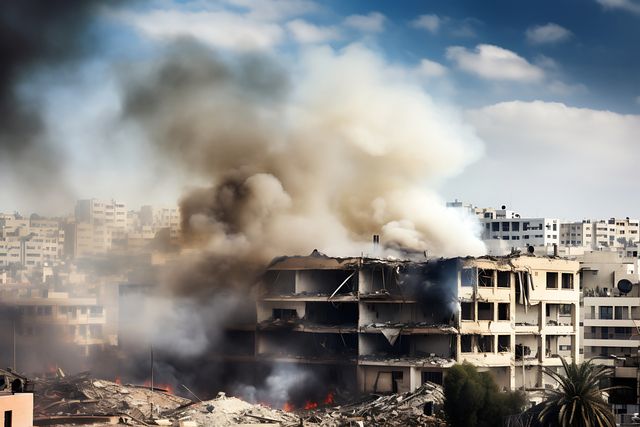US, EU urge Israel for a humanitarian pause; UN Security Council to vote on a ceasefire resolution
As Gaza ceasefire negotiations are underway, the international community is ramping up pressure on Israel to halt its five-month-long bombardment of Gaza, with the United Nations Security Council poised to vote on a US-drafted resolution for an immediate ceasefire. This resolution, backed by the European Union’s plea for a “humanitarian pause,” underscores a growing global consensus on the urgent need to address the humanitarian crisis in Gaza.
The United States, traditionally a staunch ally of Israel, has notably shifted its stance, proposing a resolution that calls for an “immediate and sustained ceasefire” to protect civilians and facilitate the delivery of humanitarian aid. This move reflects Washington’s heightened concern over the conflict, which has resulted in the deaths of approximately 32,000 Palestinians and warnings of an imminent famine due to Israel’s blockade.
Embed from Getty ImagesThe proposed Gaza ceasefire negotiations hinge not only on halting hostilities but also on the release of captives taken by Hamas during its attack on Israel on October 7. This condition marks a significant pivot from previous US positions, which have historically vetoed UN resolutions calling for a ceasefire.
US Ambassador to the UN, Linda Thomas Greenfield, highlighted the resolution’s aim to support diplomatic efforts for an immediate ceasefire, emphasizing the importance of releasing hostages and boosting humanitarian assistance. However, the language of the US draft has stirred some unease, leading to the drafting of a second resolution with more assertive demands for an immediate ceasefire, backed by a majority of the non-permanent UN Security Council members.
Concurrently, EU leaders have echoed the call for a ceasefire, stressing the dire need for humanitarian intervention in Gaza and opposing Israel’s plans for a major ground offensive in Rafah. Such an operation, they warn, would exacerbate the humanitarian catastrophe and obstruct the delivery of essential services and aid.
Negotiations for a truce are ongoing in Doha, with key figures from Israel, the US, Qatar, and Egypt participating in talks aimed at securing a temporary peace that could facilitate the exchange of captives. US Secretary of State Antony Blinken, actively involved in the negotiation process, expressed cautious optimism about reaching an agreement between Israel and Hamas, the latter controlling Gaza and responsible for the deaths of over 1,000 people in an October assault on Israel.
The deliberations in Qatar revolve around a proposed six-week truce, which would include the release of 40 Israeli captives in exchange for the release of hundreds of Palestinians detained in Israeli jails. Despite the narrowing gaps in negotiation, the path to an agreement remains fraught with challenges, primarily due to divergent positions on the terms of the ceasefire and the conditions for ending the war.
This escalating crisis and the concerted international effort to mediate a ceasefire underscore the complexity of achieving peace in the region, highlighting the dire humanitarian situation in Gaza and the pressing need for a resolution that safeguards civilian lives and fosters long-term stability.
